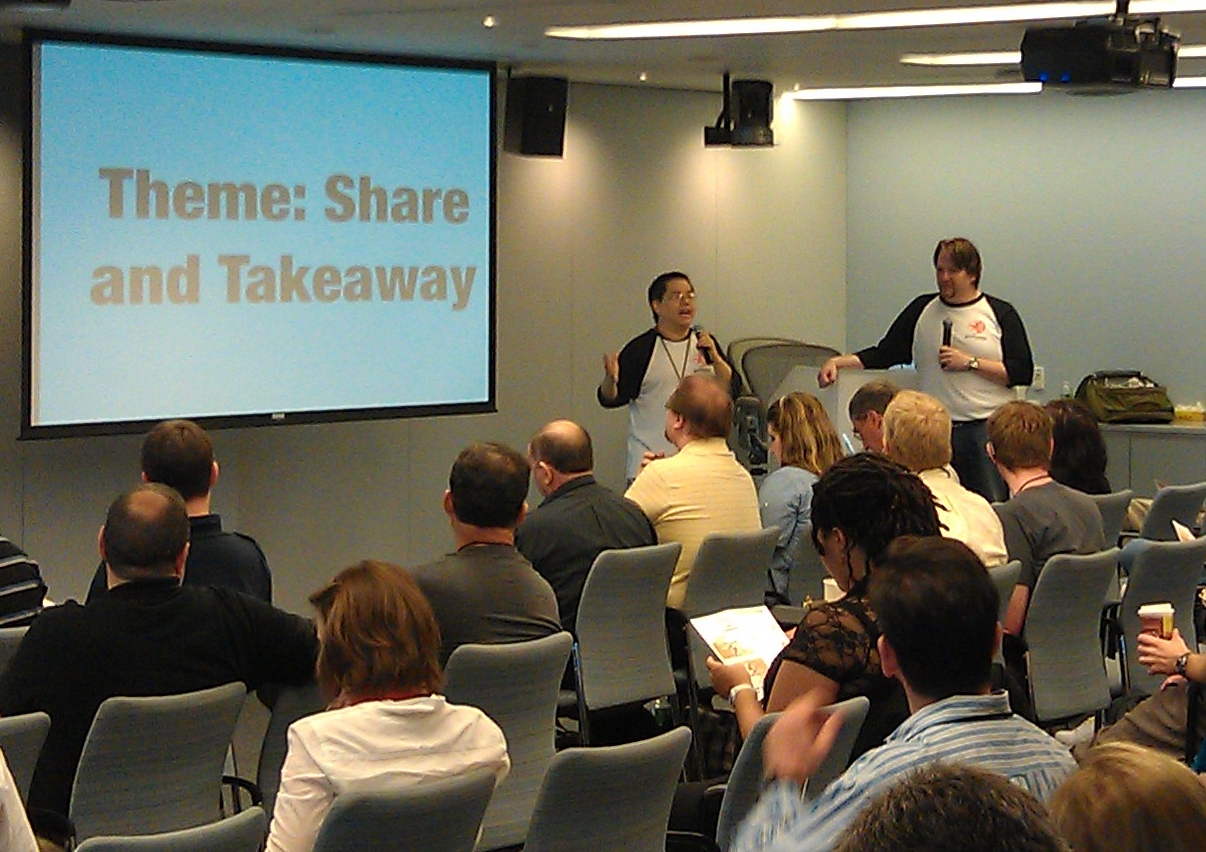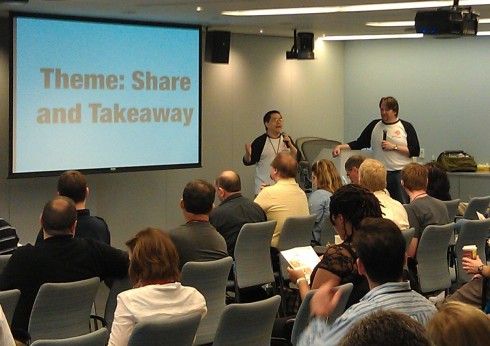Made it in Saturday for the opening of Podcamp Boston 6. (After a few working weekends in a row, I couldn’t do two full days so I just came in for Saturday morning).
While I was only able to catch three sessions, each would have been worth the trip on it’s own. All three were led by dynamic, engaging, even charismatic presenters who clearly know their stuff and know the Podcamp audience.
First up was Dave Wieneke (@usefularts) on the “Seven Sins of Digital Innovation,” aka “Stuff that F*#@s up your work, and what the hell can be done about it.”
Dave invited the assembled crowd to co-present, opening up a discussion about how projects go wrong, how to manage change in organizations, how to build buy-in, the dreaded ROI, and how to build sustainable digital strategies. Lots of great quotable moments here, many can be found in Dave’s own Storify recap).

Second, was Chris Brogan on Google+ (with guest assistance from Christopher S. Penn running the laptop). I’d just seen Chris talk about why folks should be on Google+ during the Inbound Marketing summit a few weeks back in Boston, so many of the themes in this talk were the same. Why are so many in digital marketing / social media collectively whining about having to learn a new network? Did they really forget orkut, friendster, and myspace? Are they still rocking an @aol.com email address, and a compuserve dial up account?
Chris has become a superstar but still manages to make himself so accessible that everyone thinks he’s their good friend – that’s a skill. (And I don’t mean that as a criticism – he’s authentically interested in everyone he meets in a way that seems entirely natural to him – and he listens, and remembers things you’ve said).
Finally (before I ran off to lunch) I caught Tamsen McMahon‘s (@tamadear) talk about standing out in a bell curve world.
While “personal branding” topics can devolve into hokey admonitions to “be yourself,” McMahon was funny, compelling, and insightful. She used real, understandable, and approachable examples, including reality tv for humor and local social media celebs for color and context. She’s used labels for herself like “intellectual magpie” and “personal cartography“: simple, clear, suggestive, but also entirely unique. (Almost feels like personal branding via google bomb, but those were generally meaningless phrases where hers actually make sense and suggest what she does and is).
I left Podcamp feeling energized, enthusiastic, and smarter than I’d gone in. Not bad for 3 hours on a Saturday morning.

